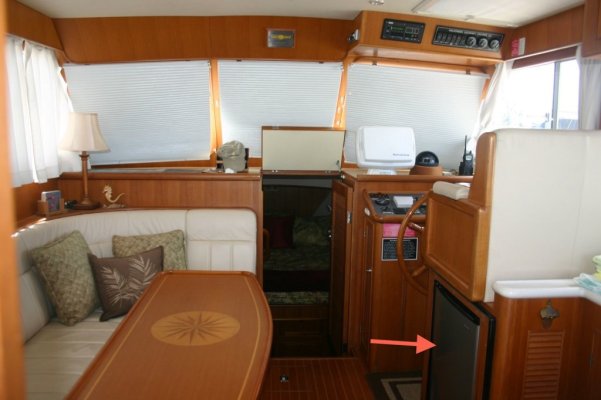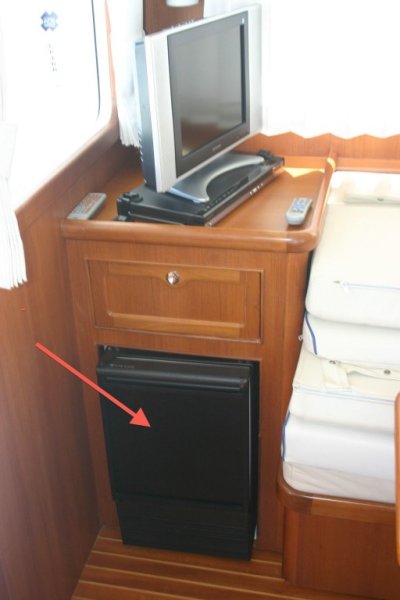In Fl , but the propane consumption does not seem to change , same 3 weeks we got in CT and in Canada on the mud run.
Our unit is from the 1960's , modern units use less propane
Propane MUST be set up so a leak can drain overboard, which might be hard to retrofit.
On our Utility we simply placed it in a weatherproof box and it sits outside on our 15 ft self draining after deck.
That location pain getting breakfast goodies , a delight at beer '30 in the PM.
Propane is more difficult on a rag boat as the unit should be in gymbols, but the minor motion on a power boat actually helps efficiency.
THe 3 way RV , Propane ,12V, 120V units work well in port with free 120.
The 12V is really inefficient , fine underway with an alternator , but a 12v compressor unit will be 3-5 times as efficient on a battery.
I would use a Servelle house unit , instead of an RV unit as the insulation is thicker , and its not 3 way , just propane.When in weekend use , we are on a mooring not dockside.
*
*Edited by FF on Wednesday 23rd of November 2011 05:36:19 AM
-- Edited by FF on Wednesday 23rd of November 2011 05:37:35 AM



